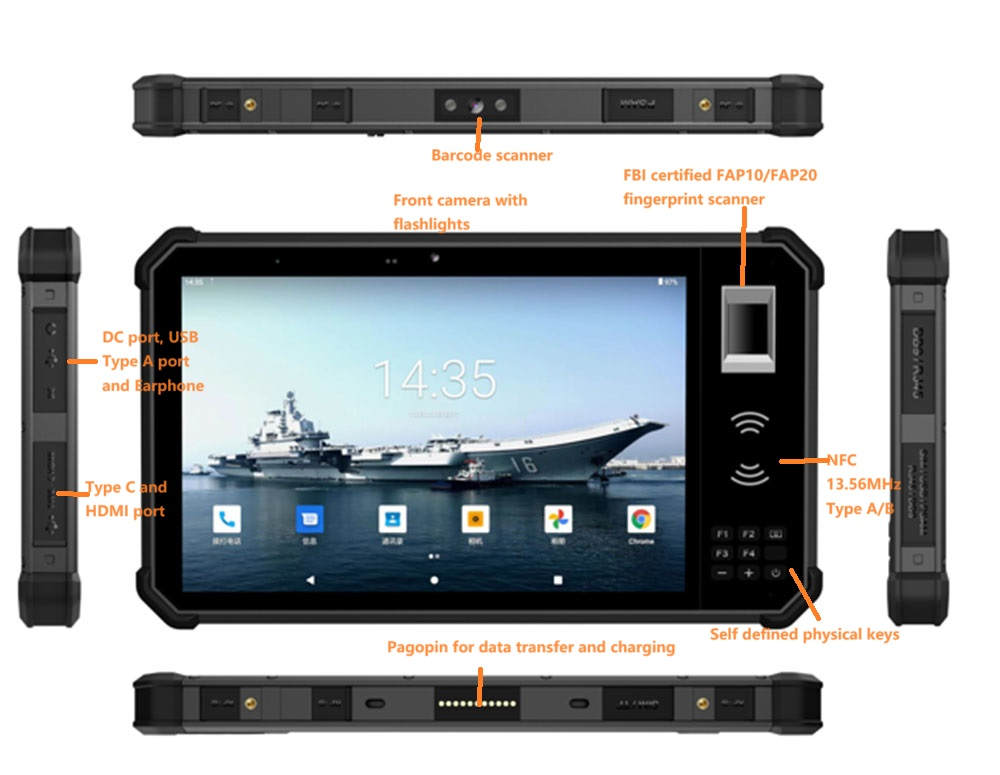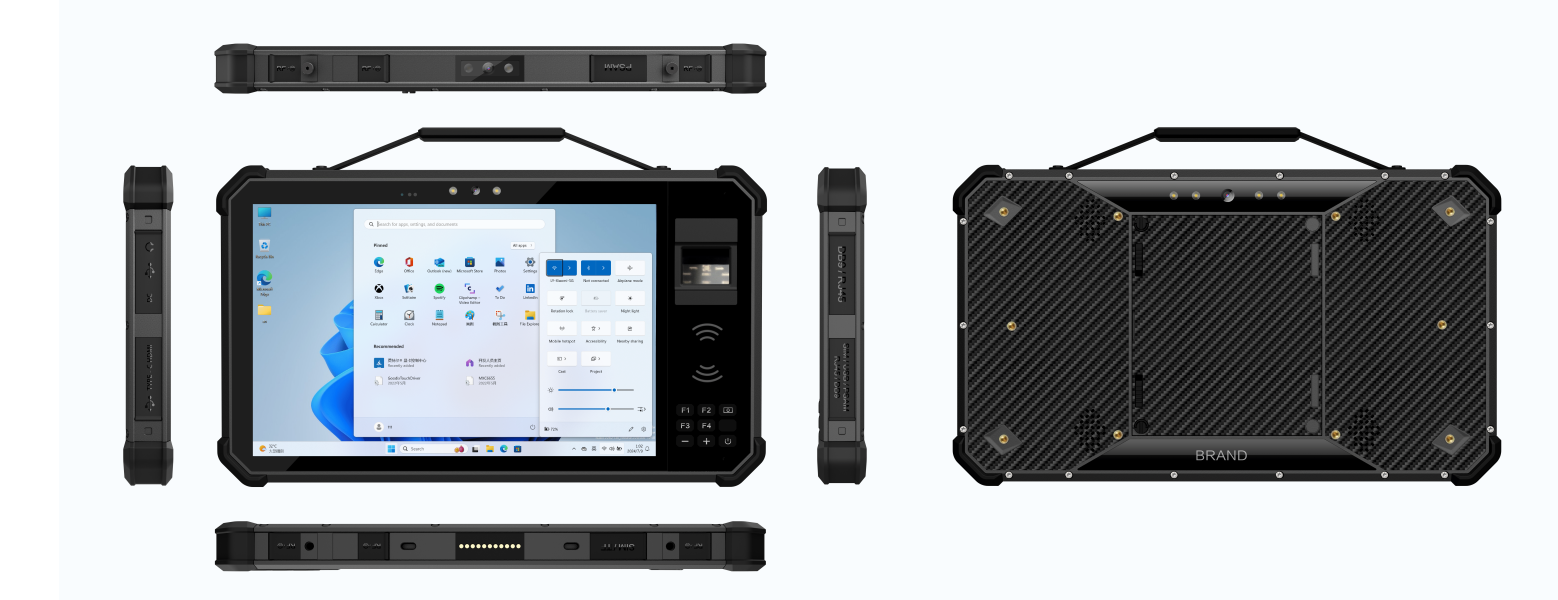What is the use of biometric tablet?
Multifunctional Applications of Biometric Tablets in Modern Technology
In an era where security and efficiency are paramount, the integration of biometrics into portable devices has revolutionized industries. One such innovation is the biometric tablet, a device that combines advanced biometric scanning capabilities with powerful computing capabilities. This blog explores the uses of biometric tablets, focusing specifically on models with IP68 standards, FBI-certified fingerprint scanners, and a powerful set of specs.

Learn about biometric tablets
Biometric fingerprint tablets are specialized devices that utilize biometric authentication methods, such as fingerprint scanning, to enhance security and simplify operations. These tablets are particularly useful in areas where data integrity and user authentication are critical, such as healthcare, finance and law enforcement. The incorporation of biometric technologies not only ensures secure access to sensitive information but also facilitates efficient data management and transaction processing.

Key Features of Biometric Tablets
This biometric tablet is designed to meet the stringent requirements of a variety of professional environments. Compliant with IP68 standard, dustproof and waterproof, suitable for use in harsh conditions. This durability is critical for field work, where exposure to harsh environments can impair the functionality of standard equipment.
The tablet comes with an FBI-certified fingerprint scanner, providing a high level of security. This certification demonstrates that the device meets strict biometric performance standards, ensuring user authentication is reliable and accurate. This feature is particularly beneficial in sectors such as law enforcement, where secure access to sensitive data is critical.
The tablet’s connectivity options are extensive, with 5G network capabilities for fast data transfer and communication. This is critical for professionals who need real-time access to information, such as medical personnel in emergencies or field agents conducting investigations. In addition, the device also includes a rich set of ports such as HDMI, RJ45, RJ232 and Lora, allowing seamless integration with a variety of peripherals and systems.
In terms of performance, the tablet is powered by an octa-core 2.4GHz CPU, ensuring that it can handle demanding applications and multitasking with ease. This processing power is critical for professionals who rely on complex software for data analysis, reporting or real-time monitoring.
Another noteworthy feature is the removable battery with a capacity of up to 10,000mAh. This allows for extended use without the need for frequent charging, making it ideal for professionals who travel frequently or work in remote areas.
Biometric Tablet Application
The applications for biometric tablets are wide and varied. In healthcare, for example, these devices can be used for patient identification, ensuring medical records are accurately matched to the correct individual. This not only improves patient safety but also streamlines administrative processes.
In the financial sector, biometric tablets can facilitate secure transactions and account access, reducing the risk of fraud. The combination of biometric authentication and high-speed connectivity ensures financial institutions can operate efficiently while maintaining strict security measures.
Law enforcement agencies can utilize biometric tablets for field operations, allowing officers to access databases and verify identities on the spot. This capability can significantly increase the effectiveness of investigations and improve public safety.
In summary, biometric tablets represent a significant advancement in portable technology, offering a combination of security, performance and versatility. With features such as IP68 protection, biometric police tablet, and powerful processing capabilities, these devices are ideal for a variety of professional applications. As the industry continues to evolve and prioritize security and efficiency, biometric tablet adoption is likely to increase, paving the way for a more secure and streamlined future.